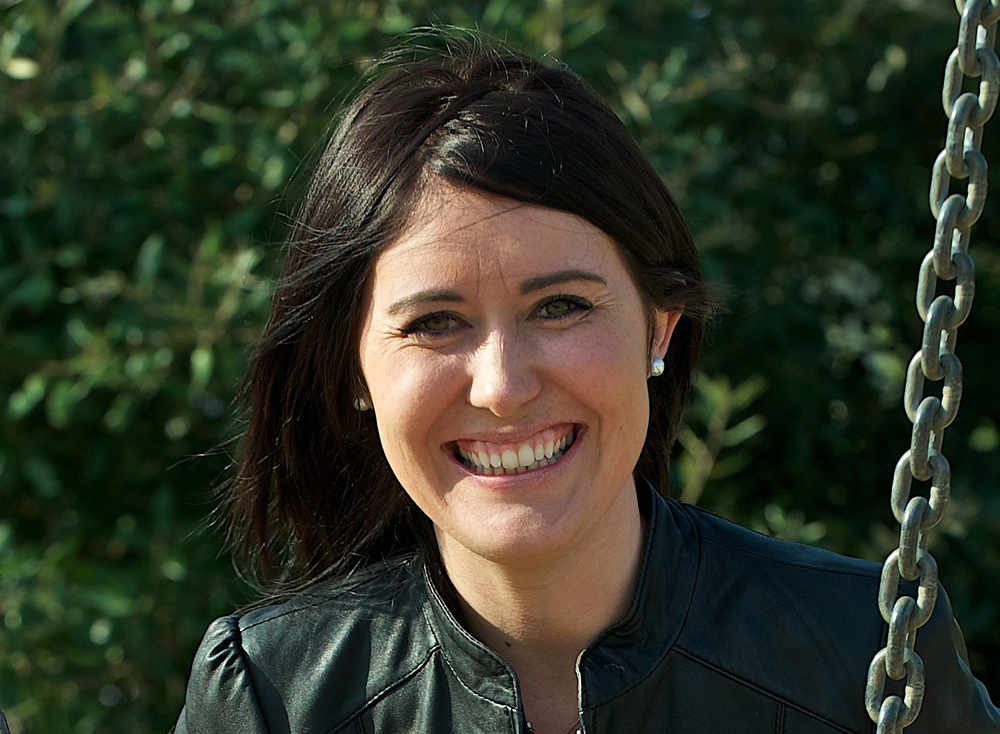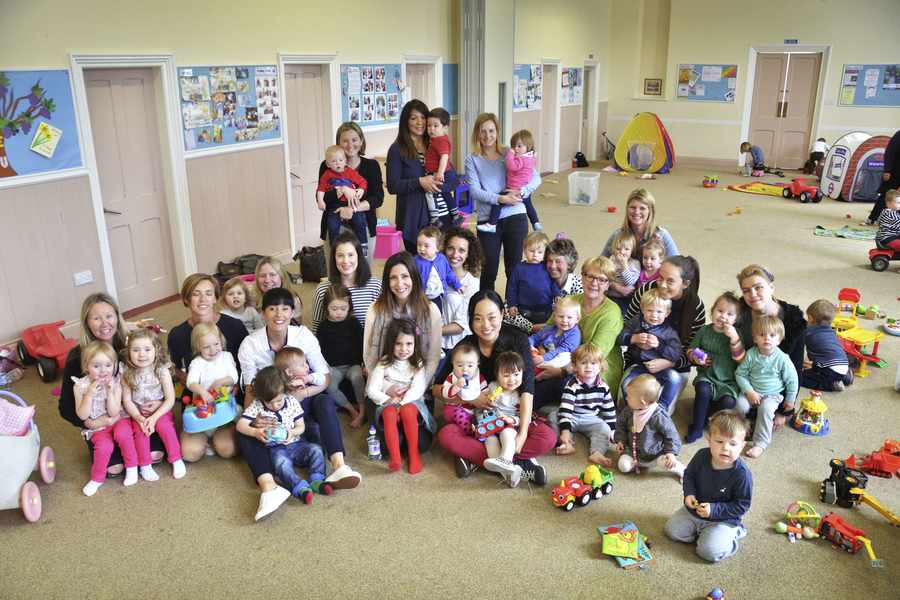Sexting is the exchange of self-generated, sexually explicit images – usually through mobile picture messages, social media or webcams – over the internet. Love Matters Jersey told JEP Parenting that the majority of young people they meet and speak to see sexting as ‘normal behaviour’.
Sarah Gray, project manager of the charity, said: ‘We find that sexting is something that young people are always keen to talk about – it certainly seems to be an extremely topical issue. Sexting is often described as the new form of courtship, and perhaps even replacing the quick snog behind the bike sheds.
‘Many young people feel that their parents would be shocked if they knew the true picture of how young people communicate. However, many of them also want their worried parents to keep calm about the subject and let them carry on.’

By Elaine Walker
WHEN your first-born arrives your life completely changes and is filled with first-time anxieties and nerves. But when your second child comes along you are a little more relaxed. This was evident as Kate Middleton left hospital (in full make-up, hair and heels) within hours of giving birth to her new princess, Charlotte Elizabeth Diana, on Saturday.
Like Kate, I left hospital within hours of giving birth to our second-born but that was the only similarity. Any mother who can leave hospital within hours of giving birth looking like she did and not wearing back leggings, baggy clothes with blood shot eyes deserves to have the title of princess and I take my crown off to her.
But I’m sure by now Kate is quickly discovering that motherhood is very different the second time around.
Here are some things that can change when you are a parent of two:
1. First-born: That new baby bible you leafed through every hour when your first-born came home is now used by your first born (now a toddler) to draw in and rip pages from.
Second-born: You don’t need a baby bible anymore as ‘you know everything’ and will now do it your way!
2. First-born: You capture every moment of your first-born from their first smile, first squeeze of finger, first bath and print every photo for their baby album.
Second-born: You realise your second-born is two months old and you don’t have one picture of them in the bath or have had time to buy a baby album yet.
3. First-born: You use a temperature stick in the bath before carefully placing baby in.
Second-born: You use your hand to feel if it is warm enough.
4. First-born: You wait until they are six months old before they have their first solids.
Second-born: Your toddler has just fed his four-month-old sibling his first solid – a piece of playdough.
5. First-born: You enroll them in lots of weekly activities to keep them busy.
Second-born: Just gets dragged around to all the first-born child’s activities.
6. First-born: Your first-born will not have any sugar until their first birthday cake, which you will lovingly bake.
But what is the same for your first- and second-born is that you do your best to treat them exactly the same and the amount of love you have for them is equal and grows with them everyday.
In 2013 an NSPCC/Childline study found that 40% of young people questioned said they had created a sexual image or video, and about a quarter said they had sent one to someone else by text.
Mrs Gray said that some young people also do it to impress their peers for a so-called ‘badge of honour’.
‘Many young people say that they would sext because to them it is completely normal and, for many, not something that they see as inappropriate. In fact, for lots of young people, sending some cheeky pictures is just seen as being a bit of fun. Some feel under pressure to take part and worry that they might be singled out if they refuse to send a picture when asked, or reciprocate if they receive one.
‘For some, it is about proving to peers that they can solicit pictures from another young person, with a collection of different photographs being seen as a badge of honour. Some are also sent unsolicited images by other young people.’
Love Matters is a charity that offers free workshops in many schools and youth clubs around the Island to help young people to make healthy and positive choices about their lives and relationships.
Mrs Gray, who runs these workshops with young people, said that they speak about these subjects to help the youngsters make positive choices and ones that they won’t later come to regret.
‘We explore the possible social, legal and emotional consequences of sexting, and encourage young people to think about how it could affect themselves and other young people, both now and in the future. We consider how sexting can impact anything from their relationships with peers, friends or a current partner right through to applications for university or jobs. Most of the issues arise with sexting when someone for whom it wasn’t originally intended sees the image.’
Young people can feel extremely embarrassed at the thought of discussing this topic with their parents and parents can often feel equally as embarrassed.
Mrs Gray said that if parents are uncomfortable talking about it with their children they should educate themselves about sexting.
She said: ‘Try to appreciate how this issue plays out in the lives of young people. Then make this topic one that you discuss with your child, not in a scary ‘sit-down-and-let’s-have-a-chat’ way, but use teachable moments such as reading this article, storylines on TV which raise the subject to start the conversation. Ask them what they think about it, explore whether they are aware of the potential consequences.
‘We often hear from parents that one of the places that they have the best conversations is in the car. There is definitely something about not being able to make eye contact that can make these potentially uncomfortable conversations much easier to have.’
And if parents discover that their child has been involved in sexting, her advice is to remain calm and supportive, reassuring their child that they are there for them and that they are not alone.
‘Alongside embarrassment they may also be feeling guilt, regret and shame. This is a powerful combination of emotions at what may well be a difficult time for them, as such it is important as a parent to tread carefully. Agree a course of action together to address the issue.
‘Remember, the most important thing that you can do is to have open and honest conversations about the risks of sexting, and to be supportive if issues do occur.’
If a parent finds it too uncomfortable to talk to their child about these sorts of issues, Love Matters also offer workshops for parents and carers to empower and equip them to speak to their children about sexting.
Agencies such as Brook Jersey and the Youth Enquiry Service offer free and confidential information, advice and counseling for young people and can support anyone struggling with these issues.
- To keep up to date with forthcoming workshops follow them on Facebook or Twitter by searching Love Matters Jersey, you can also email info@love-matters.co.uk.
Firm will wait for late developers
THERE are those children who are quick learners and those who develop late. Almost every important life stage – from potty training to academic results – can differ from one child to the next in terms of when they develop. And it seems that one of the world’s biggest accountancy firms is now taking that into account when recruiting graduates. PwC revealed this week that it would be disregarding A-level results and instead focusing on university performance. Giving reasons for its decision, a spokesman for the company said the move would ensure ‘late developers, who struggled at school’ would stand a fairer chance of gaining employment.
Blanket coverage
THIS won’t make pleasant reading, but those parents whose child has a baby blanket need to take note. A survey has revealed that the take-everywhere item can be one of the most prolific breeding grounds for bacteria – even after a wash. The study, by Dettol, claimed that baby blankets carry a huge variety of bacteria, many of which will survive a 40°C wash. The most commonly found were coliforms, which is a group of bacteria linked to faeces.
Autism harder to diagnose in girls
A STUDY of 50,000 individuals with autism spectrum disorder has found that the symptoms differ between boys and girls and that it takes longer to diagnose whether girls have the condition. The research, carried out by the Interactive Autism Network, revealed that both autism and Asperger’s syndrome are, on average, diagnosed about a year later in girls and that girls did not show the severe mannerisms, such as repetitive behaviour, as boys, further complicating diagnosis.
Lazy boys leading to heart disease?
WORKING mums are more likely to suffer heart disease and heart attacks if they have sons, Italian scientists have claimed. Researchers, who tracked the health of more than 100,000 women for eight years, found that those women who returned to work after having children were more at risk of heart problems if they had boys. The reason? Boys are less likely to help around the home with the chores, putting extra strain on their mum.
The seat to success

THERE are many popular parent and toddler playgroups here in Jersey – many of them run by hardworking volunteers and busy parents.?They usually run in community halls and are a chance for adults to talk to each other and a great opportunity for children to play and meet new friends.
Every week we want to feature these parish playgroups so if you would like to be featured please email parenting@jerseyeveningpost.com with the following details: Name of the volunteer(s) who runs the group, where, when, time, what activities there are at the playgroup for the children: and a contact number.
This week we are featuring St Martin’s Mother and Toddler Group:
Volunteers: Nadia Reid, Lisa Silbernag, Jodie Milton and Rena McQueeney.
Where: Methodist Church, Rue de Belin, St Martin
When: Wednesday
Time: 9.30 am – 11.30 am






